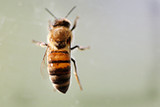Blue Sky Bee Supply Blog
Ross Round Super Kit Assembly & Harvest
Check out these videos demonstrating how to assemble the Ross Round Super Kit - AND how to harvest Ross Rounds once your bees have drawn, filled, and capped the super.
Ross Round Kit Assembly from Blue Sky Bee Supply on Vimeo.
Harvesting Your Ross Round Comb Honey from Blue Sky Bee Supply on Vimeo.
…
Oct 27th 2021
MAQS & Formic Pro Application
Oct 26th 2021
Banned EU Pesticide Affects Learning of Honey Bees But Not Bumblebees. First-of-its-Kind Research by The University of Sussex Has Implications For Insecticide Regulation
University of Sussex
Exposure to a pesticide banned by the European Union significantly
affects the learning of honey bees but has no effect on bumblebees –
scientists from the University of Sussex have discovered.
The research, published today, is the first time scientists have
looked into how both species respond to field-realistic-levels of the
neonicotinoid insecticide ‘clothianidin’ which was banned for use on
flowering crops by the European Union in 2013.
Scientists e
…
Oct 26th 2021
A CASE FOR (LOCAL) HONEY
Fully 80% of the honey consumed in this country is imported. Vietnam
and India make up half of what’s sent to the U.S. How much of that is
Chinese is a matter of discussion, but even if none of it is, the
quality of the honeys from both of these countries no way compares to
the many, many quality honeys produced right here in the U. S. This is a
GOLDEN opportunity for U. S. honey producer/packers to capture a
greater market share when selling LOCAL honey, and learning how to
cap
…
Oct 26th 2021
Rising CO2 Levels Reduce Protein in Crucial Pollen Source for Bees
WEST LAFAYETTE, Ind. – Rising levels of atmospheric carbon dioxide
have reduced protein in goldenrod pollen, a key late-season food source
for North American bees, a Purdue University study shows.
Researchers found that the overall protein concentration of goldenrod
pollen fell about one-third from the onset of the Industrial Revolution
to the beginning of the 21st century.
Previous studies have shown that increases in carbon dioxide can
lower the nutritional value of plants
…
Oct 26th 2021



